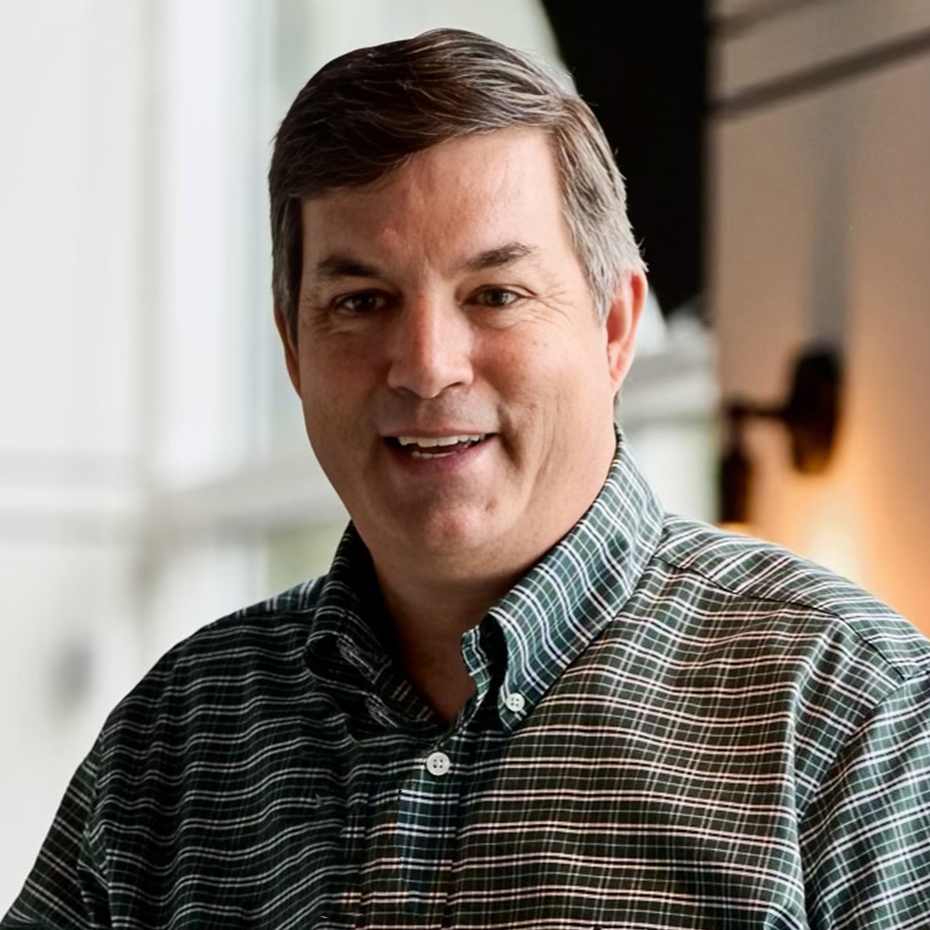By Matt Poole
My heart in writing this is to challenge the church to rethink its relationship to politics. I come with my own bias as a kingdom-first seeker. My thoughts are informed by over 30 years of ministry experience in the Washington, D.C., and Seattle, Washington, areas. I have been in ministry to government officials, military personnel, and those serving in various roles in politics. I have pastored churches with members from both the Republican and Democratic parties. I have never had any party affiliation and consider myself a seeker of a biblical perspective on contemporary issues.
Many of us would agree that our country is divided when it comes to partisan politics. Over the past two decades, the Pew Research Center has shown a trend toward increased polarization between political parties and adherents. It reveals that the more politically engaged a person or group is, the sharper the divide becomes. This polarization has had a personal impact on many of us, as we have lost friendships and family members over political narratives. We are aware of churches that have lost attenders due to a position taken that was perceived as “political.”
_
“We are now living in a society divided by political narratives, which often lead to a tendency to disregard the truth.”
_
Church consultant Speed Leas has outlined five levels of conflict for the church to address: problem-solving, disagreement, win/lose, demonization, and removal of individuals. Our conflicts and disagreements on today’s issues are not the problem. We have moved to a level of demonization where we see ourselves as good and others as bad. We believe God is on our side alone, and others are in league with the devil. This is problematic because it then leads us to justify eliminating others from our lives.
We see the problem further amplified by an unwillingness to accept the truth. A recent study conducted in 2024 and shared in the Stanford Report showed that this political division was also causing people to favor their political narrative over the truth.
“We saw an effect of people being more influenced by political alignment than truth; we saw it on both political sides, and even among people who scored well on a reasoning test. We were a bit surprised to see how widespread this tendency was. People were engaging in a lot of resistance to inconvenient truths.” – Michael Schwalbe, Journal of Experimental Psychology
We are now living in a society divided by political narratives, which often lead to a tendency to disregard the truth. This reminds me of a verse in the Bible that says,
“For the time will come when people will not put up with sound doctrine. Instead, to suit their own desires, they will gather around them a great number of teachers to say what their itching ears want to hear.” (2 Timothy 4:3)
Given this environment, is it wise to endorse political candidates or back a political party in our churches when our primary mission is to preach the gospel to all people?
A recent New York Times article reported that the IRS has changed its policy on churches endorsing candidates for election, allowing churches to endorse candidates to their members. I recently learned that the IRS wasn’t enforcing the Johnson Amendment against this behavior. This brings the policy in line with practice, which makes sense. Some have seen this as a license now to endorse political candidates.
I believe that aligning ourselves with a particular candidate or party poses a greater problem for us today, as it can polarize people and prevent them from hearing the biblical truth on the issues we wish to discuss. More importantly, they may be unwilling to listen to the clear truth of the Good News of Jesus Christ that is available to them.
For example, I had a woman come up to me after a worship service with a check in her hand. She was wondering whether to give it to the church based on which candidate we were endorsing for president. If I didn’t answer the right candidate, she was going to withhold her offering. I see our giving as an act of worship to God, regardless of who the president is, and I told her we pray for whomever is president. This reveals that she was syncing up her politics with her faith. Syncretism is something Paul warned the early church about. This is an example of the state of people in our society who equate politics with faith.
_
“When we endorse a political party, we become participants in the current division, and we endorse a narrative that may not be fully aligned with biblical truth.”
_
Aligning ourselves with the Republicans would hurt our ability to preach the Good News to Democrats and vice versa. Biblical truth on issues like abortion or immigration would be compromised by the political narratives being sown among us today by the media and candidates garnering our votes. This is the danger with aligning ourselves with partisan politics that spin biased narratives for our attention and support. The result is that our Good News gets lost in the partisan translations.
We in the church are called to unity and not to further division. The Apostle Paul said, “Make every effort to keep the unity of the Spirit through the bond of peace” (Ephesians 4:3). We may choose to divide over essential theology, but not over political ideology that is like ever-shifting sand. If we are dividing over partisan politics, then this says something about how much allegiance and trust we have given to our political parties over our bond to the Spirit.
When we endorse a political party, we become participants in the current division, and we endorse a narrative that may not be fully aligned with biblical truth. This leads to a more critical issue in the church — our ability to preach the gospel to all people. Jesus said,
“Therefore go and make disciples of all nations, baptizing them in the name of the Father and of the Son and of the Holy Spirit, and teaching them to obey everything I have commanded you.” (Matthew 28:19-20)
The Greek word used here by Jesus is the word ethnos, meaning a group of people of similar customs and culture. The word is translated as “nations,” but the concept of a sovereign nation with defined borders did not exist at the time Jesus commanded this. It indicated more of a group of people who were different from the Israelites. The gospel was to be preached to all people. Paul wrote,
“Though I am free and belong to no one, I have made myself a slave to everyone, to win as many as possible. To the Jews, I became like a Jew, to win the Jews. To those under the law I became like one under the law (though I myself am not under the law), so as to win those under the law. To those not having the law I became like one not having the law (though I am not free from God’s law but am under Christ’s law), so as to win those not having the law. To the weak I became weak, to win the weak. I have become all things to all people so that by all possible means I might save some. I do all this for the sake of the gospel, that I may share in its blessings.” (1 Corinthians 9:19-23)
_
“Our churches are not places to have our political views validated, but a place to have our walk with Jesus challenged and encouraged.”
_
Paul was certainly not a person of compromise, so that is not what he intended. Notice he says, “I belong to no one,” which means he is not associated with any of the groups he is about to list. We see that his primary purpose is to save people and not a nation or culture. I can imagine Paul saying that he would become a Democrat or a Republican to win them to Christ. His mission is singular, and he is not to be distracted by the narrative of each of those groups of people.
The church is called to preach the Good News of Jesus in a politically divided country. We will need to become all things to all people to preach the Good News to all ethnos. Our allegiance is to Christ alone and Scripture alone. The partisan ideologies of our day do not fully align with these things, and so we must refrain from aligning ourselves with them because they distract us and others from our mission. Our churches are not places to have our political views validated, but a place to have our walk with Jesus challenged and encouraged.
The narratives I hear from partisan churches are that we need to save our nation on one side or that we need to abolish our nation as we know it on the other side. We have pinned our hopes on a single partisan narrative because we have reached a point of conflict where we view the other as evil. We may have forgotten Jesus’ command to “Love our enemies.” Yet, as God’s people, our hope is not in a nation. The psalmist reminds us,
“I lift up my eyes to the mountains — where does my help come from? My help comes from the Lord, the Maker of heaven and earth.” (Psalm 121:1-2)
Our hope is in the one who raises up nations and brings them down. Our dependence is not a political alignment but upon the maker of heaven and earth. A political candidate or party won’t save us; Jesus will. We see this spiritual reality in countries like China, where the gospel is illegal and spreading, while declining here in the U.S.
How then do Christians engage with politics?
We need to speak in a way that addresses the issues of our day and illuminates God’s truth on those issues. Christians need to be engaged with contemporary issues and advocate for others from a biblical perspective. Free Methodists have often addressed issues of their day. Founder B.T. Roberts had much to say about the abolition of slavery and the use of wealth. This may require us to speak about the biblical witness to issues like abortion or immigration beyond the partisan narratives being shared on cable news channels. Our posture is to advocate in a way that speaks truth in love.
_
“To walk with the Lord is to align our values with God’s values, regardless of what a partisan narrative tells us.”
_
We are to search the Scriptures and reveal God’s truth to people in the hope of bringing them into a relationship with God. We aim to highlight where political parties are offtrack, regardless of which one we endorse. Are we willing to take a stand on an issue when it aligns with the Bible, but not with our chosen political party? More importantly, are we willing to listen to the biblical witness when it does not align with our political views? If not, that reveals something about our devotion to biblical truth.
An often-quoted verse when it comes to our country is “ … if my people, who are called by my name, will humble themselves and pray and seek my face and turn from their wicked ways, then I will hear from heaven, and I will forgive their sin and will heal their land” (2 Chronicles 7:14).
The keywords for us are “humble themselves and pray.” This is to confess our sins not just with our lips but with our hearts. Lloyd John Olgilve, former chaplain of the U.S. Senate, says in his book “Conversation With God” that this is asking God to show us our “real selves.” He goes on to write, “Lord, show me anything you see that is consistently blocking my relationship with you.” This is what he says is an idol in our lives, and he goes on to list several idols he has struggled with, including pride and piety itself.
I wonder if partisan-formed pride has become an idol in our day, and this is the reason we are so divided. Some of us have become what political scientist Eitan Hersh refers to as a “political hobbyist.” We enjoy watching our favorite news channel, sharing political opinions on social media, and engaging in debates about others’ narratives. We can spend a lot of time talking politics rather than talking about following Jesus or the actions that would bring about actual change. We can spend hours watching our favorite news channel, but not very much time on our walk with the Lord. To walk with the Lord is to align our values with God’s values, regardless of what a partisan narrative tells us.
Self-Reflection
Take a few moments to reflect on your “real self” as you read the following statements.
- I have unfriended/unfollowed a friend because of their partisan political views.
- I have refused to meet with a person who sees things differently from me.
- I tend to listen to/watch/read news sources that agree with my political point of view.
- I have distanced myself from family members because I disagree with whom they voted for in an election.
- People have distanced themselves from me because of how I share my political opinions.
- I have made derogatory statements about a sitting president or politician by calling them names or wishing them harm.
- A person’s political views have hindered me from sharing with them about my relationship with Jesus.
If one or more of these statements is true for you, I would ask you to reflect on what is going on in your heart. Ask this prayer, “Lord, show me anything you see that is consistently blocking my relationship with you and/or others.”
Maybe partisan politics not only divide the nation but also distract the church. This way, we are distracted and diluted from our mission to “go and make disciples of all nations” and to share the hope in Christ with all types of people. It may be time to set partisan politics aside for the sake of the gospel.
+

Matt Poole, D.Min., is the superintendent of the Harvest Conference of the Free Methodist Church. He has served in pastoral and denominational leadership for 30-plus years. He attended the University of Maryland (Bachelor of Science in psychology) and Gordon-Conwell Theological Seminary (Master of Divinity). He was awarded a Beeson scholarship to attend Asbury Theological Seminary, and he received his doctorate in preaching and church leadership. He spends his free time with his family, wife Heather and their two daughters. You may also find him on the roads or trails around the Western Pennsylvania area and the surrounding mountains, enjoying the great outdoors.











